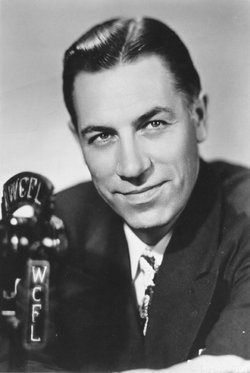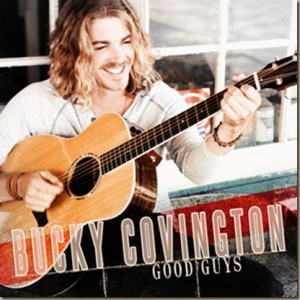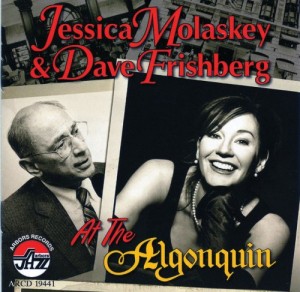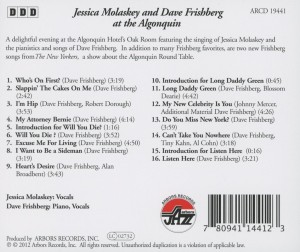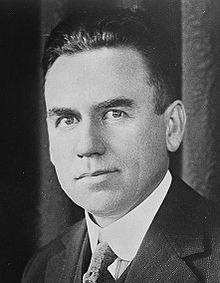JasonR
Esta Iniciativa Educativa, Presentada por La Academia Latina de la Grabación® Visitará la Escuela Libre de Música Ernesto Ramos Antonini el Martes, 30 de Abril
QUIÉNES:
El cuatro veces ganador del Latin GRAMMY® y ganador de un GRAMMY® el cantautor colombiano Carlos Vives; personalidad de la cadena Univision y fundadora de Arte por la Paz (Fundación que promueve los programas de música y arte en las escuelas), Giselle Blondet actuará como moderadora y alrededor de 400 estudiantes de la Escuela Libre de Música Ernesto Ramos Antonini.
QUÉ:
Latin GRAMMY In The Schools ofrece a estudiantes la oportunidad de conocer y aprender acerca del mundo de la música por la propia voz de uno de los músicos más talentosos de la música latina. El programa educativo, organizado por La Academia Latina de la Grabación®, también incluye anécdotas sobre las influencias y metas personales desde la perspectiva del artista. El programa concluirá con una sesión de preguntas y respuestas.
CUÁNDO:
Martes, 30 de abril 2013
8:30 – 9:15 a.m. ET Registro de Medios
9:30 – 10:15 a.m. ET Entrevistas
10:30 – 12p.m. ET Presentación del Panel
DONDE:
Escuela Libre de Música Ernesto Ramos Antonini
Avenida Chardón #125
Hato Rey, Puerto Rico 00919
INFORMACION ADICIONAL:
Para fomentar las carreras en el negocio de la música, así como la importancia de permanecer en la escuela, Latin GRAMMY In The Schools ofrece a los estudiantes de secundaria y preparatoria la oportunidad de interactuar directamente con los artistas y profesionales de la industria de la música en los centros educativos de todo el país. El programa presenta una perspectiva interna sobre el trabajo en las industrias de la música y de grabación, y arroja luz sobre las realidades del mundo de la música, así como la amplia gama de oportunidades de carrera disponibles.
La Academia Latina de la Grabación es una organización internacional compuesta por artistas, músicos, compositores, productores, y otros profesionales técnicos y creativos de la grabación, de habla hispana y portuguesa. La organización se dedica a mejorar la calidad de vida y las condiciones culturales de la música latina y sus creadores. Además de producir la Entrega del Latin GRAMMY para premiar la excelencia en las artes y ciencias de la grabación, La Academia Latina de la Grabación brinda programas educativos y de asistencia para la comunidad musical latina. Para más información acerca de La Academia Latina de la Grabación, por favor visite el sitio en Internet www.latingrammy.com. Para acceder noticias de último momento y contenido exclusivo, únete a las redes sociales de la organización y síguenos por Twitter en www.twitter.com/latingrammys, o hazte un fanático en Facebook en www.facebook.com/latingrammys.
104 years old.
George Beverly Shea was a Canadian-born American gospel singer and hymn composer. Shea was often described as “America’s beloved Gospel singer” and was considered “the first international singing ‘star’ of the gospel world,” as a consequence of his solos at Billy Graham Crusades and his exposure on radio, records, and television.
Shea himself has said that he became a Christian at the age of five or six, but made a re-dedication to Christ when he was 18:
There were times when I needed to rededicate my life to the Lord Jesus. When I was 18, my dad was pastoring a church in Ottawa, and I was feeling not too spiritual. The church was having a “special effort,” as they called it, for a week. I remember that on Friday night Dad came down from the pulpit and tenderly placed his hand on my shoulder. He whispered, “I think tonight might be the night, son, when you come back to the Lord.” Whatever Dad did or said, I listened to him and respected him. And, yes, that was the night!
Shea accepted Christ again as his Saviour at the Sunnyside Wesleyan Methodist Church in Ottawa, Canada.
During his career, Shea was nominated for ten Grammy Awards, winning on March 15, 1966, the 1965 Best Gospel or Other Religious Recording (Musical) for his album “Southland Favorites” (RCA LSP-3440) recorded with the Anita Kerr Quartet.
On February 12, 2011, Shea received the 2010 Lifetime Achievement Grammy Award.
Read more at: http://en.wikipedia.org/wiki/George_Beverly_Shea
“GRAMMY® winner Chi Cheng of the Deftones was a powerful bassist who was larger than life on stage. Playing on the group’s first five albums, he and his bandmates received a GRAMMY in the Best Metal Performance category at the 43rd GRAMMY Awards in Feb. 2001. Although the group’s early years were more heavy metal-based, they were one of the first bands to incorporate a more alternative and ethereal sound into their thunderous and visceral music, blazing a trail that newer bands continue to follow today. The music industry has lost a proud and passionate performer all too soon, and our sincerest condolences go out to his family, his bandmates, and his fans worldwide who are mourning his untimely and unfortunate passing.
Neil Portnow
President/CEO
The Recording Academy
Funds Will Provide Support for Archiving and Preservation Programs and Research Efforts that Examine the Impact Of Music on Human Development
SANTA MONICA, Calif. (April 11, 2013) — The GRAMMY Foundation® Grant Program announced today that more than $200,000 in grants will be awarded to 14 recipients in the United States to help facilitate a range of research, archiving and preservation projects on a variety of subjects. Research projects include a study that will investigate a potential core deficit in rhythm processing in developmental stuttering, combining behavioral and neuroimaging studies in children with studies in songbirds. Preservation and archiving initiatives include a project that will preserve and provide access to a unique organ recording collection of master organ player rolls and noteworthy arrangements produced in the 1920s; and an effort to preserve and digitize the audiovisual collections of imperiled media of the Andrews Sisters, Bing Crosby, Benny Goodman, and Bob Hope, among others. A complete list of grant awards and projects is below. The deadline each year for submitting letters of inquiry is Oct. 1. Guidelines and the letter of inquiry form for the 2014 cycle will be available beginning May 1 at www.grammyfoundation.org/grants.
“Since its inception, our GRAMMY Foundation Grant Program has awarded more than $6 million dollars to more than 300 noteworthy projects,” said Neil Portnow, President/CEO of The Recording Academy® and the GRAMMY Foundation. “This year we have another remarkable slate of selected grantees. Funds will be used for activities as varied as the preservation of unique live radio broadcasts from the ’30s and ’40s and the digitization of more than 90,000 Mexican-American recordings on 78s, 45s and cassettes to studies and programs that investigate the effects of music on children and their development — including one that will assess the biological effects of musical training on child brain development in collaboration with a nonprofit organization that provides free musical training to children in the gang reduction zones of Los Angeles. The GRAMMY Foundation Grant Program is truly at the forefront of philanthropy across the areas of archiving, preservation and scientific research.”
Generously funded by The Recording Academy, the Grant Program provides funding annually to organizations and individuals to support efforts that advance the archiving and preservation of the recorded sound heritage of the Americas for future generations, as well as research projects related to the impact of music on the human condition. In 2008 the Grant Program expanded its categories to include assistance grants for individuals and small- to mid-sized organizations to assist collections held by individuals and organizations that may not have access to the expertise needed to create a preservation plan. The assistance planning process, which may include inventorying and stabilizing a collection, articulates the steps to be taken to ultimately archive recorded sound materials for future generations.
Preservation Implementation
New York Philharmonic — New York
Awarded: $20,000
The New York Philharmonic Archives will digitize and preserve 52 hours of brittle lacquer discs documenting 36 unique live radio broadcasts from the 1930s and 1940s. The total cache of 245 radio broadcast recordings made between 1932–1962 comprise a total of approximately 350 hours of audio in various formats to be made available to the public at the philharmonic’s reading room and the New York Public Library for the Performing Arts. www.nyphil.org
New Orleans Jazz & Heritage Foundation — New Orleans
Awarded: $3,095
The New Orleans Jazz & Heritage Foundation Archive will digitally preserve and make access copies of the 10 reel-to-reel master 2-inch tapes of the “Professor Longhair Fire Relief Benefit”, held April 22, 1974, to benefit Professor Longhair (Henry Roeland Byrd, 1918–1980). This work will result in the creation of preservation and access digital files, and the public will be welcomed to listen to the recordings in the archive. The original master tapes will be permanently stored in Iron Mountain’s special audiovisual vault. www.jazzandheritage.org
Center for Popular Music at Middle Tennessee State University — Murfreesboro, Tenn.
Awarded: $19,993
There are nearly 4,000 tapes in the Charles K. Wolfe Audio Collection at the Center for Popular Music, many of which are oral histories of musicians or field recordings. Dating from the 1930s–2000, this is likely the premier collection in the American Mid-South region. The center will inventory the contents, conserve the recordings, transcribe to digital format when appropriate, and make the collection publicly accessible. www.popmusic.mtsu.edu
American Organ Institute Archive and Library at the University of Oklahoma School of Music — Norman, Okla.
Awarded: $20,000
American Organ Institute Archive and Library will preserve and provide access to an incredibly unique organ recording collection. The collection’s emphasis is on the original and irreplaceable master organ player rolls produced by Moller Pipe Organ Co. in the 1920s (16 tons total), as well as recordings of organ arrangements by notable performers on organs lost to time. Many of the collection’s most treasured items are made of paper and are deteriorating rapidly. These will now be restored and shared with the public. www.ou.edu/aoi
The Arhoolie Foundation — El Cerrito, Calif.
Awarded: $20,000
Since 2005, the Arhoolie Foundation has digitized more than 90,000 Mexican-American recordings on 78s, 45s and cassettes from their Strachwitz Frontera Collection. The collection has been made accessible through a partnership with the UCLA Digital Library Program. Arhoolie will complete their final stage to digitize the rare LPs and unissued reel-to-reel master tapes. The Strachwitz Frontera Collection is a one-of-a-kind, unique cultural treasure that needs preservation and accessibility. www.arhoolie.org http://frontera.library.ucla.edu/
ONE National Gay & Lesbian Archives at the University of Southern California Libraries — Los Angeles
Awarded: $10,000
This implementation project will preserve, digitize, and provide public online access to one-of-a-kind, fragile, and historically significant audio recordings in the ONE Archives, the world’s largest LGBT historical collection. This project will make available 177 hours of recorded lectures, interviews, and oral histories that preserve the voices of the pioneering activists, scholars, and artists who launched the LGBT struggle for equality over the past six decades. www.onearchives.org
Preservation Implementation, cont’d. Pacifica Foundation — North Hollywood, Calif.
Awarded: $10,000
Pacifica Radio Archives will digitize, catalog, preserve, and promote 72 hours (93 tapes) of fragile reel-to-reel analog audio tapes holding unique broadcasts from Pacifica Radio’s listener sponsored noncommercial radio station, New York City’s WBAI-FM. Two significant series are to be preserved: The Free Music Store featuring Phil Ochs, Arthur Miller and Bill Vanaver and the Mind’s Eye Theatre, which produced radio plays created by premier artists and technicians. www.pacificaradioarchives.org
Preservation Assistance Michael Feinstein Great American Songbook Initiative — Carmel, Ind.
Awarded: $5,000
The Feinstein Initiative will determine necessary storage, rehousing, remediation, conservation, preservation, and digitization of audiovisual collections that include but are not limited to 16″ transcription discs, lacquer discs, cassette tape, CD, analog reel-to-reel, 16mm film, and slides that document the music of songbook legends such as Rudy Vallée, Meredith Willson and the Andrews Sisters. The preservation assessment will allow the initiative to find funding for preservation so that these items can be made accessible to researchers and the public. www.feinsteininitiative.org
Freedom Archives — San Francisco
Awarded: $5,000
Art Sato, a leading authority on contemporary jazz and new music, has hosted “In Your Ear,” a two-hour weekly radio series on KPFA-FM from 1981 to the present. The Freedom Archives will prepare for the digital preservation of more than 80 in-depth, unique, extended, and exclusive interviews over the last 30 years. The collection contains great artists and innovative practitioners of jazz and Latin music, including many who are now deceased. www.freedomarchives.org
Scientific Research Northwestern University — Chicago
Awarded: $19,895
This study will assess the biological effects of musical training on child brain development in collaboration with the Harmony Project, a nonprofit organization providing free musical training to children in the gang reduction zones of Los Angeles. Specifically, the study will examine the effects of musical training on the neural processing of speech as well as on the development of critical language and learning skills. www.brainvolts.northwestern.edu
John Devin McAuley — East Lansing, Mich.
Awarded: $19,500
Stuttering affects 3 million Americans. Children with chronic stuttering face lifelong struggles that can impact academic achievement and lead to negative psychosocial consequences. The project goal is to investigate a potential core deficit in rhythm processing in developmental stuttering, combining behavioral and neuroimaging studies in children with studies in songbirds, which under controlled conditions can be induced to stutter. psychology.msu.edu/TAPlab/index.htm
Scientific Research, cont’d Regents of the University of California, University of California, San Diego — La Jolla, Calif.
Awarded: $19,860
The SIMPHONY project is a unique collaboration designed to understand how music training affects children’s brains and the development of general cognitive skills like language and attention. It is the first study of its kind and will track 60 children annually starting at ages 5–10 as they engage in ensemble music training (versus nonmusic controls) using an extensive battery of neural and behavioral testing. www.chd.ucsd.edu/research/simphony-study.html
University of Washington — Seattle
Awarded: $10,000
Research shows that musical experience can enhance and promote healthy child development. Synchronization between players is a key aspect of playing music together. Synchrony can also strengthen bonds and affiliation between individuals. The dual aims of the proposed project are to: (a) determine whether children prefer synchronous as opposed to asynchronous rhythms and (b) examine whether children’s preference for synchrony is enhanced for musical interactions involving pitch, harmony and melody. We expect a musical context to increase the difference between synchronized and asynchronous interactions, illustrating music’s role as a vehicle for positive interpersonal interaction. ilabs.washington.edu
Pitzer College — Claremont, Calif.
Awarded: $19,900
To what extent do music and language share neural resources? We propose to evaluate music perception and cognition in a group of 40 aphasic individuals whose language deficits and brain lesions are well characterized. Using voxel-based lesion-symptom mapping, we will identify the areas of the brain that are most essential to the perception of melody, harmony, and rhythm, and compare these with similar VLSM analyses of language in the same participants. www.pitzer.edu/academics/faculty/justus/index.asp
The GRAMMY Foundation was established in 1989 to cultivate the understanding, appreciation and advancement of the contribution of recorded music to American culture. The Foundation accomplishes this mission through programs and activities that engage the music industry and cultural community as well as the general public. The Foundation works in partnership year-round with its founder, The Recording Academy®, to bring national attention to important issues such as the value and impact of music and arts education and the urgency of preserving our rich cultural heritage. In recognition of the significant role of teachers in shaping their students’ musical experiences, the GRAMMY Foundation and The Recording Academy are partnering to present our first Music Educator Award. Open to current U.S. music teachers in kindergarten through college, the Music Educator Award will be given out during GRAMMY Week 2014. The nomination process is online at grammymusicteacher.com and the deadline for submissions is April 15. For more information about the Foundation, please visit www.grammyfoundation.org. For breaking news and exclusive content, please like “GRAMMY in the Schools®” on Facebook at www.facebook.com/grammyintheschools, follow the GRAMMY Foundation on Twitter @GRAMMYFdn at www.twitter.com/GRAMMYFdn and join us on Instagram @GRAMMYFdn at www.instagram.com/GRAMMYfdn.
Bucky Covington took the same path to country music that was taken by Carrie Underwood, Kellie Pickler , Scotty McCreery and Casey James. Bucky, like the others, started on the stage of American Idol. He finished in eighth place during season five.
The path he took, however, has not been a smooth one. Since Bucky released his first album back in 2007, he hit a few stumbling blocks. His single, “A Different World,” from the album of the same name, made it into the top 10 on the country charts. That album also gave us the singles “It’s Good to Be Us,” and “I’ll Walk.”
Things started out good for Bucky. He was recording for Lyric Street Records, and his debut album was produced by Mark Miller, lead singer for the band Sawyer Brown. But, before Bucky had a chance to get his second studio album on store shelves, Lyric Street Records closed their doors, leaving him without a label for several years.
Now on the roster of Entertainment One Music Group, he is recording for eOne Records, and released his sophomore album, “Good Guys,” this past September. His first single from the new CD, “I Wanna Be That Feeling,” didn’t do as well as the singer would have hoped, making it only to the number 57 spot on country music charts. There are a lot of really good songs on the new album, and hopefully, Bucky and his management team will find one that works for country radio.
The 12 songs on the “Good Guys” album are I Wanna Be That Feeling, I’m Alright, Hold a Woman, Drinkin’ Side of Country (a duet with Shooter Jennings), Only Got So Much Time, Mama Must Be Prayin’, Sail On, I Always Said You’d Be Back, Mexicoma, I Want My Life Back, Gotta Be Somebody, and A Father’s Love (The Only Way He Knew How).
The music on this album is a nice mix of 70s country music coupled with a contemporary radio-ready feel. This project for Bucky definitely puts the old with the new.
“I’m Alright” is slow, and it’s good – it tells a story. Bucky’s vocals seem to be just the right sound for this song. That one is followed by “Hold a Woman.” I’m not sure where that ‘raspy’ voice came from – this, too, is a great song for Bucky.
He pairs up with Shooter Jennings, son of legendary country Waylon Jennings, on the song “Drinkin’ Side of Country”. Kellie Pickler has a part in the music video for this song, which Bucky co-wrote with his brother/drummer, Rocky. “Drinkin’ Side of Country” sounds like so many of the songs we are hearing on country radio these days, so I’m really not sure why it didn’t the air time I feel it deserved.
“Only Got So Much Time” is pretty much the story of everyone’s life. It puts you in mind of songs like “You’re Gonna Miss This,” or “Don’t Miss your Life,” and even Tim McGraw’s “Live Like You Were Dying.” While the words and thoughts are definitely different from those other songs, the message is simple….life is short, we only have so much time, use it wisely.
“Mamma Must Be Praying, the sixth song on the album, is a fast song with a familiar melody. When I first heard it, I knew it reminded me of something else, but I have no idea what. It’s not one of my favorite songs on this CD, but I don’t dislike it either.
For people who like a sad and depressing song every now and then, Bucky has one of those for you with “Sail On.” It’s a typical country break-up song, but it’s a pretty song. He follows that one with “I Always Said You’d Be Back,” which will get you back in a happy mood. What Bucky did her was follow the break-up song with a ‘you’re back’ song. This one is fun to listen to.
“Mexicoma” starts with the feel of a mariachi band, a little brass, a little fun… a little bit of ‘this makes me want to jump on a plane and take a vacation.’ It’s a good song, it’s everything you might expect from a ‘let’s go to Mexico, sit on the beach, and drink Tequila’ song. That brings us to “I Want My Life Back.” and we’re back to slow, a little bit depressing, a little sad… but one of my absolute favorites on this album.
The 11th song is called “Gotta Be Somebody,” and you might remember hearing this song before. It was the first official single released by Nickelback from their sixth album, Dark Horse, back in 2008. All I have to say about this is I believe Bucky’s version of the song is much better. It ended up being one of my favorites on the CD.
You can keep up with Bucky, and listen to some of his music, by visiting his web site http://buckycovington.com/. And, you can keep up with everything country by visiting ours at www.countryschatter.com. Follow us on Twitter, too, @countryschatter.
MusicChartsMagazine.com (USA) – The Pulse of Music – Music News around the World!
– Coming soon: Music Charts Magazine Canada & Music Charts Magazine Europe
Artist Name = Jessica Molaskey and Dave Frishberg
Genre = Jazz
Title = At The Algonquin
Record Company = Arbors
Though singer Jessica Molaskey receives top billing on this CD, her presence is unnecessary except on “Who’s on First?,” which requires two singers, and “Excuse Me for Living,” which must be sung by a woman. Dave Frishberg generously included her at this engagement, as he featured Rebecca Kilgore at other sessions. The CD belongs to him: he either wrote or collaborated on all the songs, sings on most of them, and plays piano on all of them.
One knows what to expect from Frishberg’s most appealing work: witty narratives with hip lyrics and engaging rhymes sung with a nasal voice to the composer’s own accompaniment. The narratives are the star. “I’m Hip” gives hilarious examples of the singer’s hipness, such as watching arty French movies while wearing sunglasses. At the conclusion of this selection, Molaskey says appropriately of Frishberg, “If you’re not hip, I don’t know who is.” On “My Attorney Bernie,” possibly his most famous song, the lyrics characterize an attorney who, among other things, always orders expensive wine, finds it unacceptable, and returns it. “I Want to Be a Sideman” enumerates the joys of being a sideman, among which are sleeping on buses, smoking during intermissions, and drinking in hotel bars. “My New Celebrity Is You” (lyrics additional to those written by Johnny Mercer) is notable for rhyming names, such as Michael Feinstein, Aaron Weinstein, Gertrude Stein, Albert Einstein. “Can’t Take You Nowhere,” which uses the melody of Tiny Kahn’s “TNT” plus a chorus from “Tiny’s Blues,” relates the embarrassing behavior of a date
or spouse: she drinks to excess, is cheap, overstays her welcome, and so forth. Yet the concluding words are ambiguous. In expressing sadness that the gauche one must leave, does the male imply deep love, or is he ironic?
I find Frishberg’s sentimental lyrics far less effective than the witty ones. They include “Do You Miss New York?,” a paean to the Apple, and “Listen Here,” a self-help lyric Frishberg wrote for Mary Tyler Moore. These ballads aspire to deep meaning but do not attain it.
During the 1930s, the Round Table—Robert Benchley, George S. Kaufman, Alexander Woollcott, and others—met frequently in New York at the Algonquin Hotel, where this CD was recorded in 2011. Another member was Dorothy Parker, about whom Frishberg wrote two of the songs heard here. The first, “Will You Die?,” questions, in a black humor manner, whether Parker will succeed at killing herself after three unsuccessful attempts. The disjunction between the meaning and the melody, which is jaunty, reinforces the humor. I wonder, though, about the advisability of performing such a song before an unsuspecting audience: a listener who knew a suicide would find nothing humorous about it. In the second Parker song, “Excuse Me for Living,” Molaskey sings of Parker’s sense of worthlessness. The lovely melody is as incongruous as the one to “Will You Die?”
Applause and laughter indicate that Frishberg and Molaskey delighted the Algonquin audience, though never more than on “My New Celebrity Is You.” The crowd erupts when Molaskey identifies Pizzarelli as a celebrity friend. She is married to the guitarist and singer John Pizzarelli who, with numerous friends, surely was responsible for the huzzah. One need not understand all the allusions on this or the other songs, though, to enjoy At the Algonquin.
Author = Benjamin Franklin V
Vernon Dalhart ( Marion Try Slaughter ) lived April 6, 1883 to September 14, 1948.
Vernon Dalhart was a popular American singer and songwriter of the early decades of the 20th century. He is a major influence in the field of country music.
Dalhart was born in Jefferson, Texas. He took his stage name from two towns, Vernon and Dalhart in Texas, between which he punched cattle in the 1890s.
From 1916 until 1923, using numerous pseudonyms, he made over 400 recordings of light classical music and early dance band vocals for various record labels.
Research by Billboard statistician Joel Whitburn determined “The Prisoner’s Song” to have been a No. 1 hit for 12 weeks in 1925-26. In 1998, “The Prisoner’s Song” was honored with a Grammy Hall of Fame Award and the Recording Industry Association of America named it one of the Songs of the Century. It was the
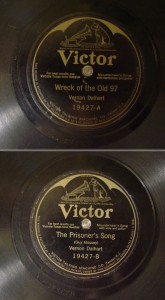 desire of the Victor Talking Machine Company to duplicate the sales success of ‘Wreck/Prisoner’ that led them to contract with Ralph S. Peer to go to the southern mountains in the Summer of 1927 to facilitate ‘The Bristol Sessions’, arguably the single-most important recording event in the history of country music, where Jimmie Rodgers and the original Carter Family were first discovered, and after which, Peer’s royalty model would become the standard of the entire recorded music industry.
desire of the Victor Talking Machine Company to duplicate the sales success of ‘Wreck/Prisoner’ that led them to contract with Ralph S. Peer to go to the southern mountains in the Summer of 1927 to facilitate ‘The Bristol Sessions’, arguably the single-most important recording event in the history of country music, where Jimmie Rodgers and the original Carter Family were first discovered, and after which, Peer’s royalty model would become the standard of the entire recorded music industry.
Read more: http://en.wikipedia.org/wiki/Vernon_Dalhart
Sit back and enjoy yourself listening to this one hour Music Charts Magazine Easter weekend radio special.
Big Al will guide you though this Easter weekend with one solid hour of Easter trivia, stories and some good ole Easter music that we are sure that you’ll enjoy!
|
Click the play button to listen to: “Music Charts Magazine 4 part Easter Weekend Radio Special” – with Big Al. |
[audio:http://www.musicchartsmagazine.com/wp-content/uploads/Big-Al-Easter-Program-SEG-11.mp3,http://www.musicchartsmagazine.com/wp-content/uploads/Big-Al-Easter-Program-SEG-2.mp3,http://www.musicchartsmagazine.com/wp-content/uploads/Big-Al-Easter-SEG-31.mp3,http://www.musicchartsmagazine.com/wp-content/uploads/Big-Al-Easter-SEG-41.mp3|titles=Segment 1- Music Charts Magazine Easter Weekend Radio Special,Segment 2- Music Charts Magazine Easter Weekend Radio Special,Segment 3- Music Charts Magazine Easter Weekend Radio Special,Segment 4- Music Charts Magazine Easter Weekend Radio Special] |
( The Big Al Bluegrass Show is brought to you by MusicChartsMagazine.com )
GRAMMY® winner Gordon Stoker was known for his stellar tenor voice, which graced countless memorable recordings throughout his more than 60-year career. As a longtime member of the vocal quartet the Jordanaires, he helped to influence the sound of gospel, country and pop music with a unique and versatile style while recording with an impressive roster of artists. Stoker worked with the likes of Patsy Cline, George Jones, Loretta Lynn and played a significant role in the career of Elvis Presley for more than a decade. We have lost a gifted and timeless artist who made significant contributions to music and our industry, and our sincerest condolences go out to his family, friends and all who were inspired by his talents.
Neil Portnow
President/CEO
The Recording Academy
Grants Awarded to 10 Top U.S. Public High Schools for Music Excellence Including Six Enterprise Awards Granted to Economically Underserved Schools
Supported in Part by Best Buy, the Ford Motor Company Fund, and the Hot Topic Foundation
Special GRAMMY Signature Schools Community Awards Given Throughout The Year In Partnership With Best Buy And The Hot Topic Foundation
SANTA MONICA, Calif. (March 28, 2013) — The GRAMMY Foundation® (www.grammyfoundation.org) announced today that 10 schools nationwide have been selected as GRAMMY® Signature Schools (www.grammyintheschools.com) for 2013 and have been awarded cash grants totaling $56,000. Created in 1998, the GRAMMY Signature Schools program recognizes top U.S. public high schools that are making an outstanding commitment to music education during an academic school year. Each of the 10 GRAMMY Signature Schools will receive a custom award and a monetary grant to benefit its music program. The top three schools are designated Gold recipients. The best of the Gold recipients is named the National GRAMMY Signature School. The National GRAMMY Signature School will receive $10,000, and the two remaining Gold schools each will receive $5,500. One remaining GRAMMY Signature School recipient will receive a grant of $2,000 to benefit its music programs. In the Enterprise Award category, which recognizes efforts made by schools that are economically underserved, six schools will receive a grant of $5,500 each. GRAMMY Signature Schools are made possible in part through the generous support of Best Buy, the Ford Motor Company Fund, and the Hot Topic Foundation.
The GRAMMY Foundation also offers the GRAMMY Signature Schools Community Award, an extension of the GRAMMY Signature Schools program in partnership with Best Buy and the Hot Topic Foundation. Through this alliance, the GRAMMY Foundation identifies deserving public high school music programs to receive the award and a $2,000 grant. During the past year, approximately 86 schools have received the GRAMMY Signature Schools Community Award, and total dollars granted exceeded $172,000.
“For the past 15 years, our GRAMMY Signature Schools program has been providing much-needed financial resources and recognizing excellence in schools across the U.S. whose music programs have a positive impact on the lives of their students,” said Neil Portnow, President/CEO of The Recording Academy® and the GRAMMY Foundation. “We’re extremely grateful to our sponsors, whose generous support has allowed this initiative to grow. This program also was one source of inspiration behind the new Music Educator Award being presented by The Recording Academy and the GRAMMY Foundation that will honor music’s unsung heroes — the teachers who spend their days in classrooms encouraging music’s next generation.”
2013 GRAMMY Signature Schools:
2013 National GRAMMY Signature School ($10,000)
Neuqua Valley High School — Naperville, Ill.
2013 GRAMMY Signature Schools Gold ($5,500 each)
Marcus High School — Flower Mound, Texas
York Community High School — Elmhurst, Ill.
2013 GRAMMY Signature Schools ($2,000)
Northwood High School — Irvine, Calif.
2013 GRAMMY Signature Schools Enterprise Award ($5,500 each)
Colony High School — Palmer, Alaska
Compton High School — Compton, Calif.
John Marshall High School — Los Angeles
North Central High School — Spokane, Wash.
Palacios High School — Palacios, Texas
Sahuarita High School — Sahuarita, Ariz.
The selection process for GRAMMY Signature Schools begins each year in August when the GRAMMY Foundation mails notification to more than 20,000 public high schools from districts large and small, urban, suburban and rural, requesting information about each school’s music program. Applications are completed and submitted online in October at www.grammyintheschools.com. After the applications are scored, finalists are identified and asked to submit additional documentation, such as recordings of school concerts, sample concert programs and repertoire, which is then reviewed by an independent blue-ribbon committee of top music educators and professionals to determine the schools that merit GRAMMY Signature School status.
The GRAMMY Foundation was established in 1989 to cultivate the understanding, appreciation and advancement of the contribution of recorded music to American culture. The Foundation accomplishes this mission through programs and activities that engage the music industry and cultural community as well as the general public. The Foundation works in partnership year-round with its founder, The Recording Academy, to bring national attention to important issues such as the value and impact of music and arts education and the urgency of preserving our rich cultural heritage. In recognition of the significant role of teachers in shaping their students’ musical experiences, the GRAMMY Foundation and The Recording Academy are partnering to present our first Music Educator Award. Open to current U.S. music teachers in kindergarten through college, the Music Educator Award will be given out during GRAMMY Week 2014. The nomination process is online at grammymusicteacher.com and the deadline for submissions is April 15. For more information about the Foundation, please visit www.grammyfoundation.org. For breaking news and exclusive content, please “like” GRAMMY in the Schools® on Facebook at www.facebook.com/grammyintheschools, follow the GRAMMY Foundation on Twitter @GRAMMYFdn at www.twitter.com/GRAMMYFdn and join us on Instagram @GRAMMYFdn at www.instagram.com/GRAMMYfdn.
